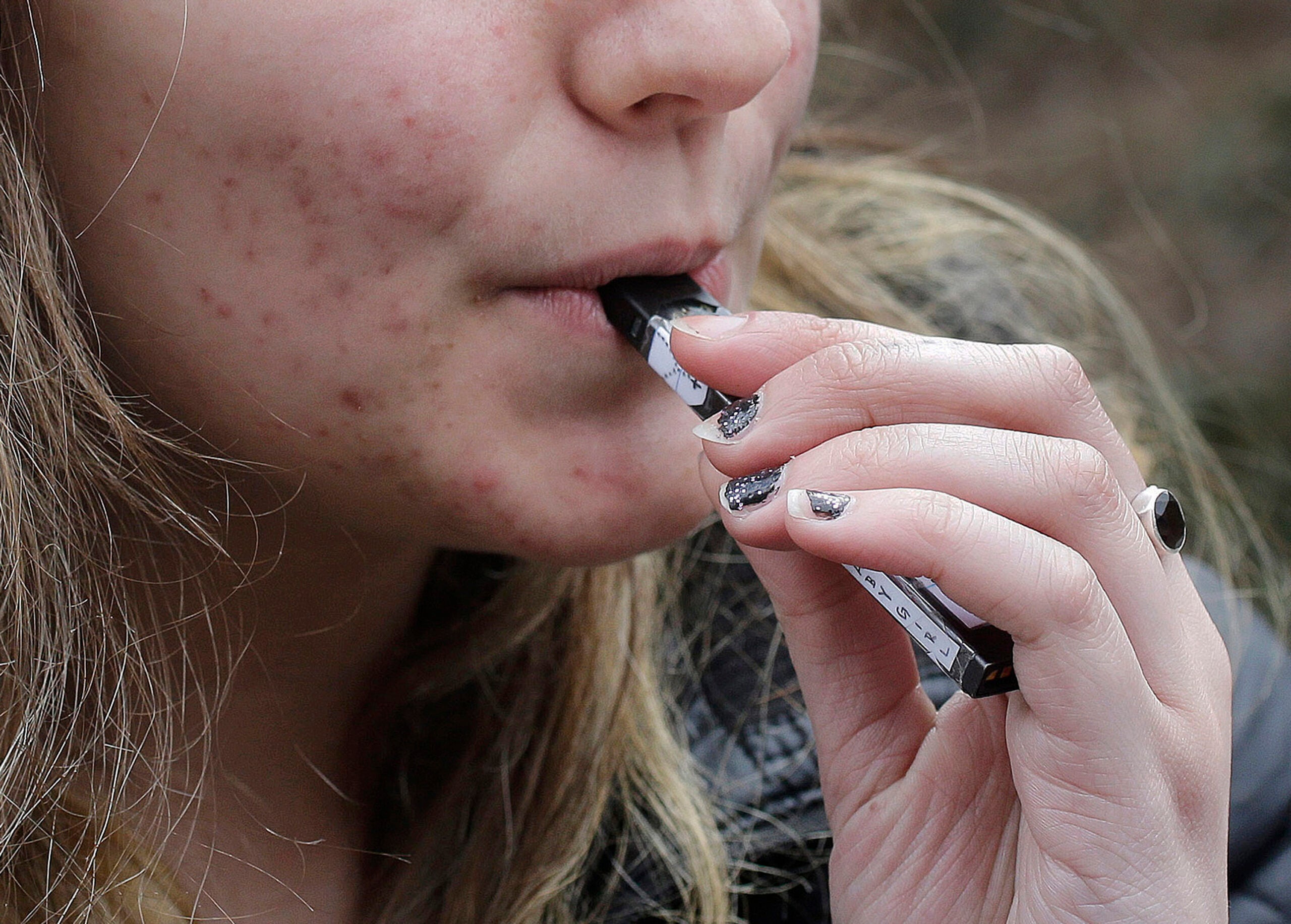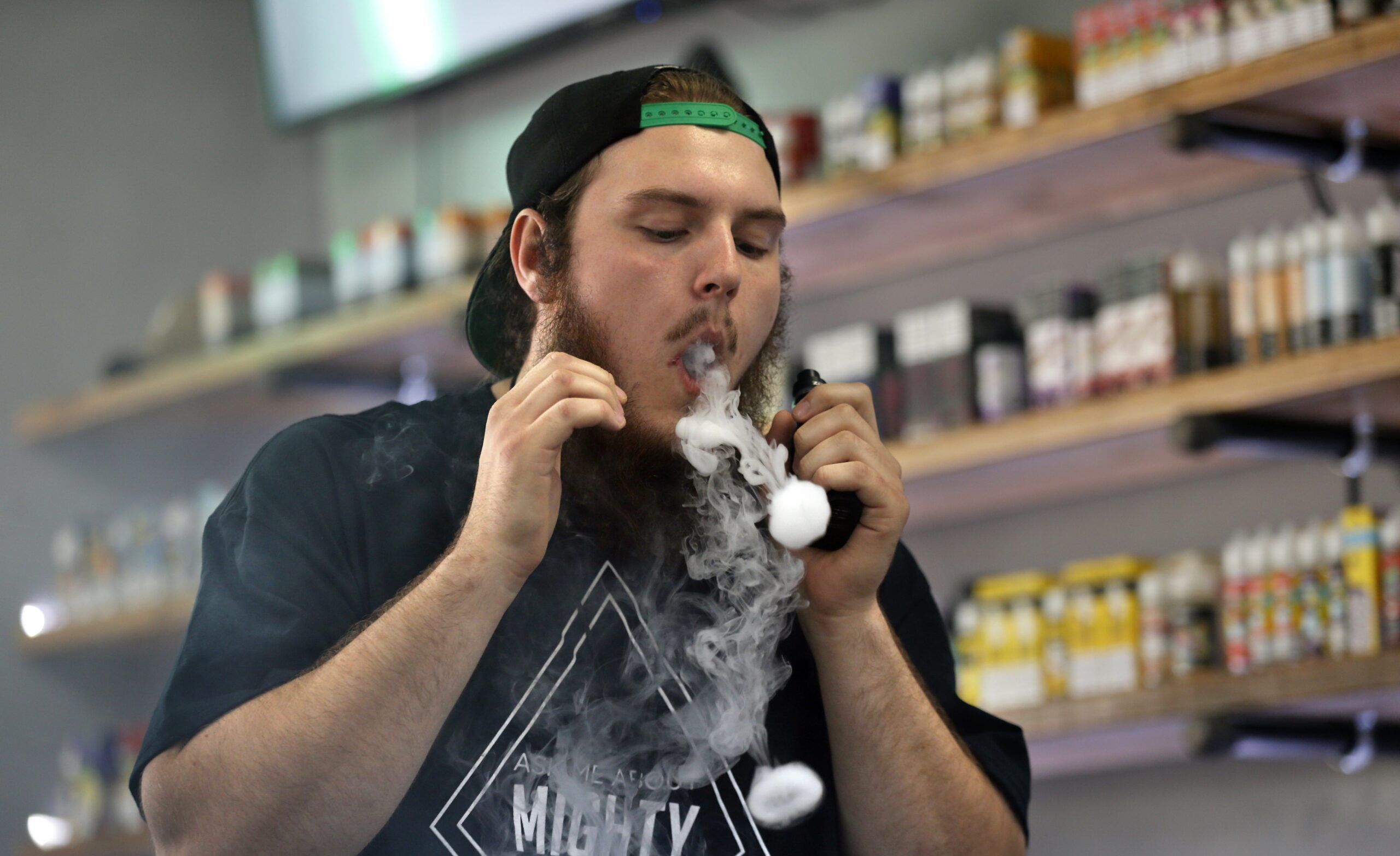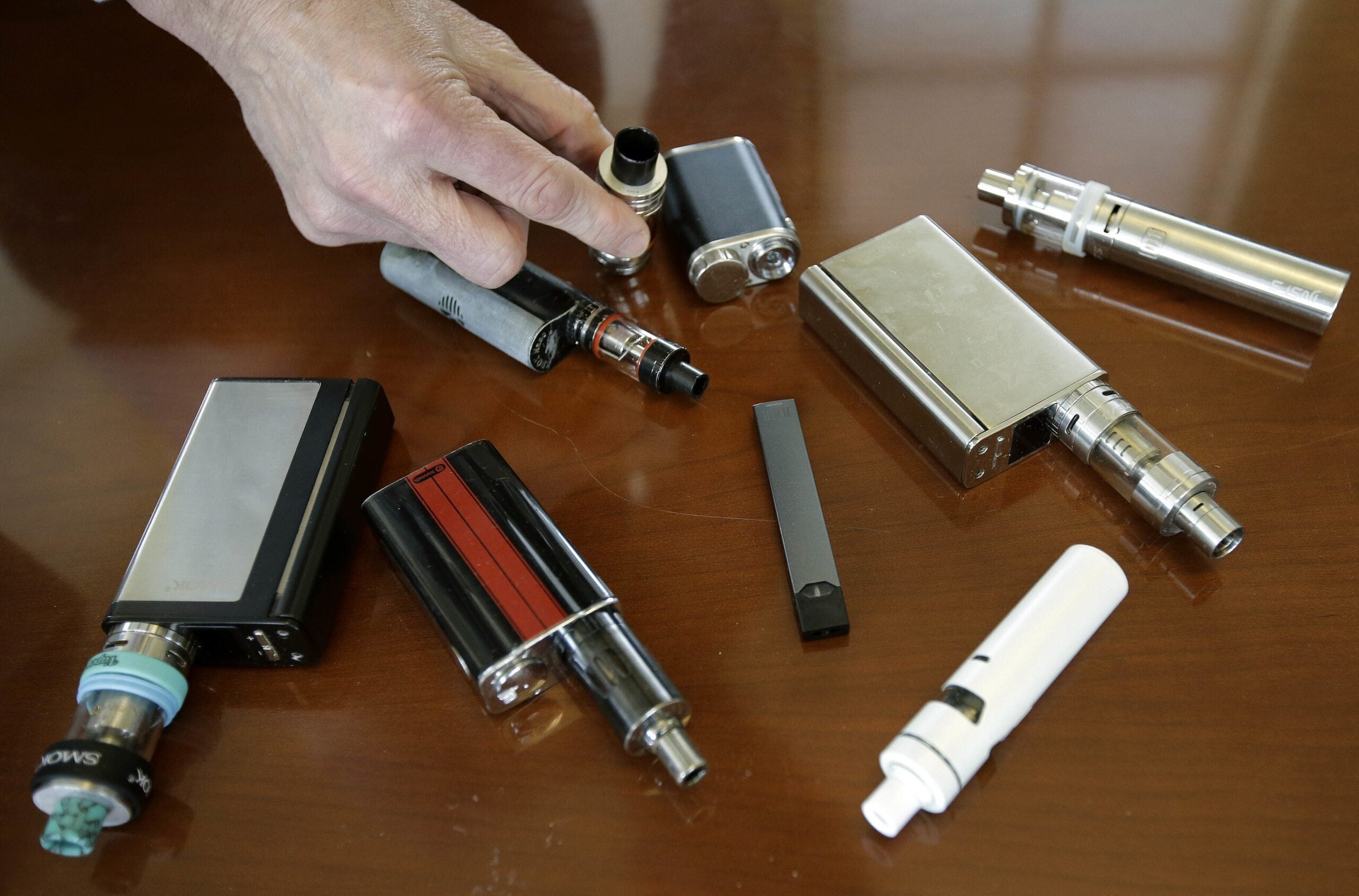Underage tobacco and vape sales increased across Wisconsin this year, according to data released by the Wisconsin Department of Health Services.
While the increase was slight from the year before, underage tobacco and vape sales have increased 140 percent since 2019, the increase largely due to the legal age for buying tobacco increasing from 18 to 21.
According to the DHS, sales to underage buyers sit at about 13.6 percent of total sales this year. If tobacco sales to people who are underage exceed 20 percent of total sales, Wisconsin stands to lose millions in federal funding resources.
News with a little more humanity
WPR’s “Wisconsin Today” newsletter keeps you connected to the state you love without feeling overwhelmed. No paywall. No agenda. No corporate filter.
Gina Larsen of the DHS’s Tobacco Prevention and Control Program said the “disappointing” increase can be explained by the mismatch in state and federal laws.
State law says the legal age to buy cigarettes, nicotine or tobacco products is 18 years old. But in 2019, federal law raised the age to 21. The federal law supersedes state regulations.
Larsen said that’s confusing for retailers and consumers and limits the power of local law enforcement who cannot issue citations for federal violations.
“There’s kind of a way out of this forest of confusion,” Larsen said.
She says the solution is to change the state law to mirror the federal one.
According to the American Lung Association, 95 percent of adults who have ever smoked daily started by age 21. That’s why Larsen believes increasing the age will be effective.
“So by age 25, if you haven’t started, you probably never will,” Larsen said.
Larsen said nicotine usage negatively impacts a changing brain, which is why the age limit is important. It can affect attention, focus and impulse control, and exacerbate mental health issues like anxiety and depression.
“This is just such an important time in a young person’s life, and these choices that they make are going to impact their health, their finances, their relationships, their workplace productivity far into the future,” Larsen said.
According to the Centers for Disease Control and Prevention, in 2023, nearly 28 of every 100 high school students said they tried a tobacco product.
Previous attempts to bring state law in line with the federal regulations on tobacco have failed.
The Wisconsin State Assembly passed bills in 2020 and 2022 with bipartisan support to raise the minimum age to 21, but the Senate never took up a vote on the measures. Rep. John Spiros, R-Marshfield, co-authored both bills with Sen. Howard Marklein, R-Spring Green.
Spiros said he is “befuddled” as to why the bills haven’t passed since he sees health issues as a priority.
Rep. Jill Billings, D- La Crosse, co-sponsored the 2022 bill. She said she is concerned about vaping because it can lead to other substance use.
“I’m concerned about these numbers and I think we’ve got to do more in the state of Wisconsin to address this,” Billings said.
Billings is part of a group of Democratic lawmakers that are reintroducing a package of laws aimed at this very topic. Billings said the bills would prohibit vaping in public and private school property, fund a public health campaign for the prevention of tobacco and vaping for minors, and examine retail licenses. She said the package will be introduced next month.
As legislative action inches along, Larsen and Spiros agree that caregivers must help adolescents make healthy choices.
“The biggest thing is to keep up to speed on the sneaky tobacco tactics that are out there from the big tobacco companies,” Larsen said.
The DHS’s Tobacco 21 campaign, which was first launched in January of this year, provides information and resources on competing laws. It includes free training for retailers and their employees.
There are also advocates throughout the state trying to curb tobacco use.
Charlie Leonard, coalition coordinator with the City of Milwaukee Tobacco-Free Alliance, said they educate young people about the dangers of tobacco use, especially those in the LGBTQ community since they use tobacco at higher rates.
When they talk to young people, there is a common response.
“‘I started (using tobacco) to help manage my stress,’ or ‘I didn’t realize it was as addictive as it was and I want to quit but it’s really hard,’” Leonard said.
They remind people there are resources to curb addiction.
“You only get one set of lungs. So that damage is with those young people forever,” Billings said.
Wisconsin Public Radio, © Copyright 2025, Board of Regents of the University of Wisconsin System and Wisconsin Educational Communications Board.






